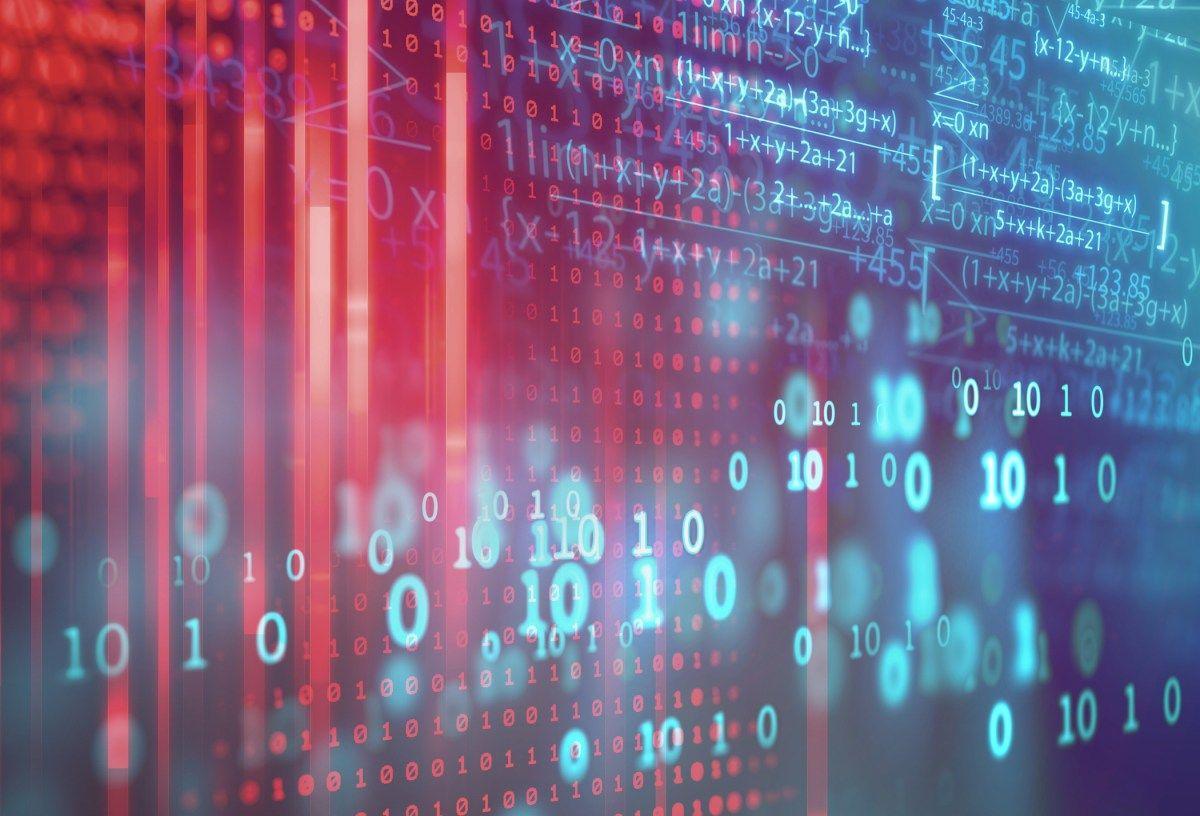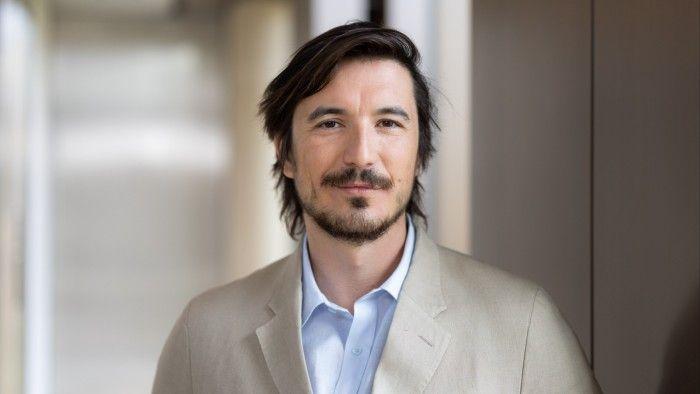Robinhood CEO's AI Math Startup Harmonic Raises $100M, Valued at $875M
3 Sources
3 Sources
[1]
Robinhood CEO's AI Math Startup Valued at Nearly $900 Million
Harmonic AI, an artificial intelligence startup co-founded by Robinhood Markets Inc. Chief Executive Officer Vlad Tenev, has raised $100 million in funding to tackle a problem that has sometimes confounded AI models: math. The Series B funding round was led by Kleiner Perkins, with participation from Sequoia Capital, Index Ventures and Paradigm. The deal values the AI startup at $875 million, said Tenev, who serves as the company's executive chairman, a non-operating role. Harmonic's CEO is Tudor Achim, who previously led autonomous driving startup Helm.ai.
[2]
Harmonic raises $100M at nearly $900M valuation to scale AI model for formal mathematical reasoning - SiliconANGLE
Harmonic raises $100M at nearly $900M valuation to scale AI model for formal mathematical reasoning Artificial intelligence for formal mathematical reasoning startup Harmonic AI Inc. announced today that it had raised $100 million in new funding on a nearly $900 million valuation to accelerate its momentum at the frontier of mathematical reasoning and its rapid progress towards commercializing its flagship model. Founded in 2023 and co-founded by Vlad Tenev, the chief executive officer of Robinhood Markets Inc., Harmonic is building Aristotle, a next‑generation AI engine the specalizes in formal mathematical reasoning. Aristotle uses the Lean 4 proof assistant, a proof assistant that allows users to write mathematical definitions, theorems and proofs in a way that can be checked for correctness by a computer, to translate natural-language mathematical problems into formally verifiable proofs. Harmonic's approach is focused on mathematical superintelligence, AI with reasoning capabilities that match or exceed humans. Aristotle has achieved a state-of-the-art 90% success rate on standard benchmarks like MiniF2F by autoformalizing and solving high school to International Mathematical Olympiad-level math problems. MiniF2F is a benchmark dataset designed to evaluate AI models on formal mathematical reasoning by testing their ability to solve math problems using formal proof systems like Lean. The company's methodology involves the use of synthetic data generation for training. Instead of relying on web-scraped data, the system autonomously generates formal problem-proof pairs, which enable recursive self-improvement. Essentially, the AI model can train itself through a "self-play loop" to scale its capabilities, working from simple exercises toward solving advanced theorems. Ultimately, the goal for Aristotle is to solve mathematical problems at a level far exceeding human capabilities. The company says that by accelerating mathematics, the doors open to driving breakthroughs across multiple dependent fields, including theoretical physics and engineering. "We're getting closer to AI that can truly reason - quickly, reliably and at scale," said Tenev, co-founder and executive chairman of Harmonic. "Mathematical Superintelligence is moving from research to real-world applications and we're excited for Aristotle to start putting this AI capability into the hands of users." The Series B round was led by Kleiner Perkins Caufield & Byers, with Paradigm Management, Ribbit Capital Management and existing investors Sequoia Capital Operations, Index Ventures Management and Charlie Cheever also participating. "Harmonic has created a new foundation for verified, scalable reasoning that can be trusted in high-stakes environments," said Ilya Fushman, partner at Kleiner Perkins. "I'm deeply excited about the applications of Aristotle not just for software, but for accelerating progress across science, engineering and general intelligence." As part of the funding deal, Fushman, who is also a former physicist, will join Harmonic's board as an observer. The funding comes after Harmonic had previously raised $75 million in Series A funding in September.
[3]
The Founder of Robinhood Has a New AI Startup. It's Already Valued at $825 Million
Vlad Tenev already has one massively successful startup under his belt with Robinhood. The financial services company reported $927 million in revenue in the first quarter of this year, and its shares are up 154 percent year-to-date (and more than 350 percent in the past year). Now, Tenev has a new startup that he says will address the problem of AI hallucinations -- and investors are flocking to it. Tenev's Harmonic AI, has just closed a Series B funding round that took in $100 million in funding from Kleiner Perkins, Paradigm, Sequoia Capital, and Index Ventures. That values the startup, which launched less than two years ago, at $875 million. The company previously raised $75 million in its Series A round last September. Tenev is co-founder of Harmonic, but he's not running the company on a day to day basis. (It's also a wholly separate venture from Robinhood.) Tudor Achim is CEO and is steering Harmonic to develop mathematical superintelligence (MSI), a different sort of AI than the more well-known companies are focusing on.
Share
Share
Copy Link
Harmonic AI, co-founded by Robinhood CEO Vlad Tenev, secures $100 million in Series B funding led by Kleiner Perkins, reaching a valuation of $875 million. The startup focuses on developing AI for mathematical reasoning.
Harmonic AI Secures $100 Million in Series B Funding
Harmonic AI, an artificial intelligence startup co-founded by Robinhood Markets Inc. CEO Vlad Tenev, has successfully raised $100 million in a Series B funding round. The investment, led by Kleiner Perkins with participation from Sequoia Capital, Index Ventures, and Paradigm, values the company at an impressive $875 million
1
2
.
Source: Bloomberg
Focus on Mathematical Reasoning
Founded in 2023, Harmonic AI is developing a next-generation AI engine called Aristotle, which specializes in formal mathematical reasoning. The company's approach focuses on achieving mathematical superintelligence (MSI), aiming to create AI with reasoning capabilities that match or exceed human abilities
2
.Aristotle utilizes the Lean 4 proof assistant to translate natural-language mathematical problems into formally verifiable proofs. The AI model has already achieved a state-of-the-art 90% success rate on standard benchmarks like MiniF2F, demonstrating its ability to solve math problems ranging from high school to International Mathematical Olympiad levels
2
.Innovative Training Methodology
Harmonic's methodology involves a unique approach to AI training. Instead of relying on web-scraped data, the system autonomously generates formal problem-proof pairs. This enables recursive self-improvement, allowing the AI model to train itself through a "self-play loop" and scale its capabilities from simple exercises to advanced theorems
2
.Leadership and Vision
While Vlad Tenev serves as the executive chairman in a non-operating role, Harmonic's CEO is Tudor Achim, who previously led autonomous driving startup Helm.ai
1
3
. Tenev expressed enthusiasm about the project's potential, stating, "We're getting closer to AI that can truly reason - quickly, reliably and at scale"2
.Investor Confidence and Future Applications
The substantial funding and high valuation reflect strong investor confidence in Harmonic's potential. Ilya Fushman, partner at Kleiner Perkins and former physicist, will join Harmonic's board as an observer. Fushman commented, "Harmonic has created a new foundation for verified, scalable reasoning that can be trusted in high-stakes environments"
2
.Related Stories
Broader Implications for AI and Science
Harmonic's focus on mathematical superintelligence could have far-reaching implications. By accelerating progress in mathematics, the company aims to drive breakthroughs across multiple dependent fields, including theoretical physics and engineering. This approach also addresses the problem of AI hallucinations, a common issue in current AI models
2
3
.
Source: SiliconANGLE
Financial Backing and Growth
The recent $100 million Series B round follows a $75 million Series A funding secured in September, demonstrating rapid financial growth and investor interest. This substantial backing positions Harmonic to accelerate its development and commercialization efforts for the Aristotle model
2
3
.As AI continues to evolve, Harmonic's unique approach to mathematical reasoning and problem-solving could potentially reshape the landscape of artificial intelligence, opening new possibilities for scientific discovery and technological advancement.
References
Summarized by
Navi
[2]
Related Stories
Harmonic AI Secures $120M at $1.45B Valuation to Eliminate AI Hallucinations Through Mathematical Reasoning
26 Nov 2025•Startups

Nvidia backs Harmonic's $120M Series C as AI math startup reaches $1.45 billion valuation
16 Jan 2026•Startups

Harmonic Launches Aristotle: A New AI Chatbot Promising Hallucination-Free Math Solutions
29 Jul 2025•Technology

Recent Highlights
1
Google Gemini 3.1 Pro doubles reasoning score, beats rivals in key AI benchmarks
Technology

2
Nvidia and Meta forge massive chip deal as computing power demands reshape AI infrastructure
Technology

3
ChatGPT cracks decades-old gluon amplitude puzzle, marking AI's first major theoretical physics win
Science and Research





